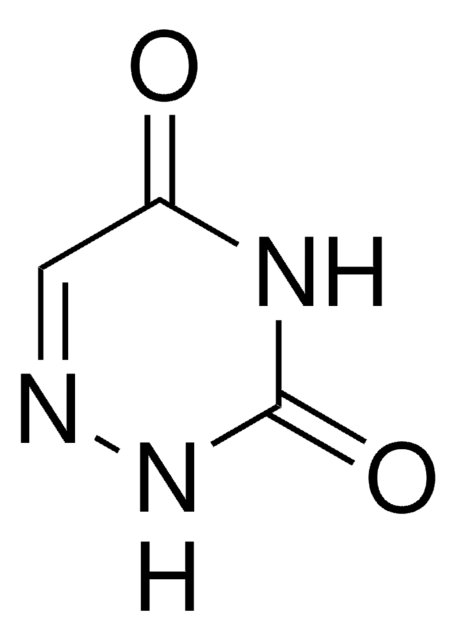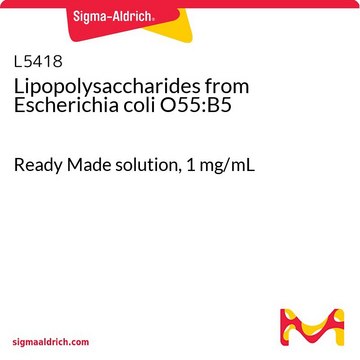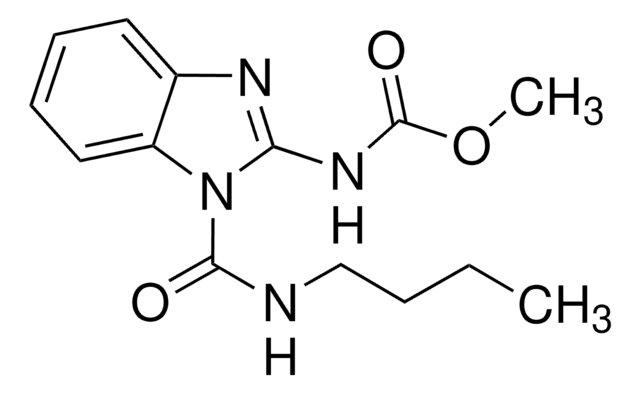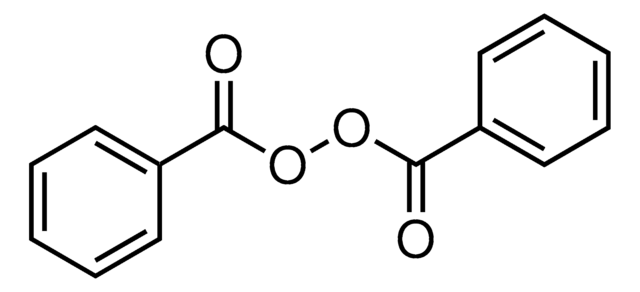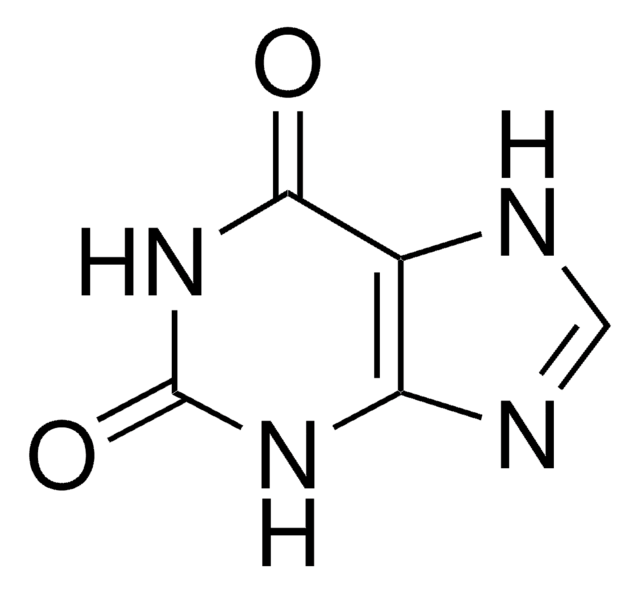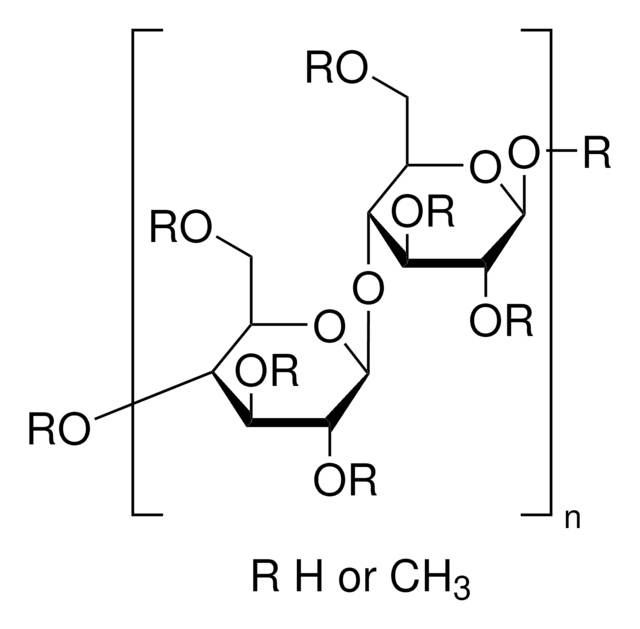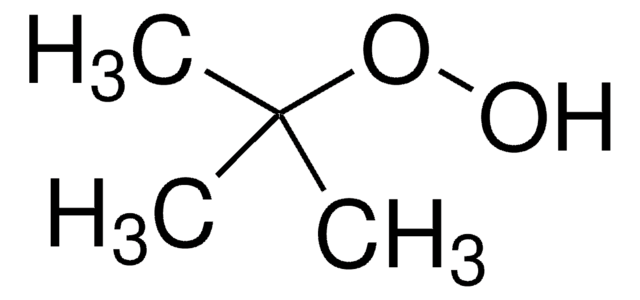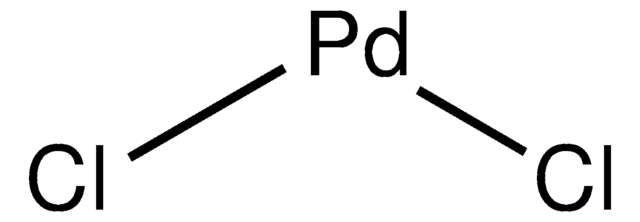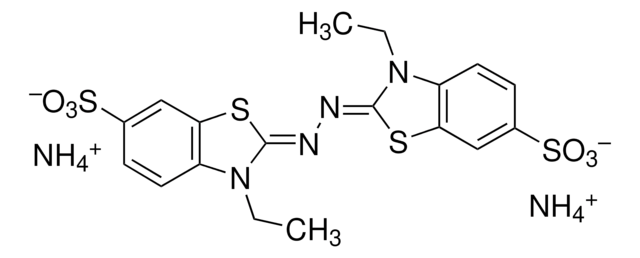A1882
6-Azauridine
Synonym(s):
2-β-D-Ribofuranosyl-1,2,4-triazine-3,5(2H,4H)-dione, 6-Azauracil riboside
About This Item
Recommended Products
Assay
≥99% (TLC)
Quality Level
form
powder
mp
157-159 °C (lit.)
solubility
water: 50 mg/mL, clear, colorless
storage temp.
2-8°C
SMILES string
OC[C@H]1O[C@H]([C@H](O)[C@@H]1O)N2N=CC(=O)NC2=O
InChI
1S/C8H11N3O6/c12-2-3-5(14)6(15)7(17-3)11-8(16)10-4(13)1-9-11/h1,3,5-7,12,14-15H,2H2,(H,10,13,16)/t3-,5-,6-,7-/m1/s1
InChI key
WYXSYVWAUAUWLD-SHUUEZRQSA-N
Looking for similar products? Visit Product Comparison Guide
General description
Application
- in uridine monophosphate synthase (UMPS) activity assay
- as an antiviral agent to study its inhibition effect and cytotoxic potential on foot and mouth disease virus
- to screen for anticryptosporidial activity
- in the pretreatment of HeLa cells to study its effect on inhibition of cellular uridine synthesis before and during chase with 5-bromouridine 5′-triphosphate (BrUTP)
- as a reference compound for comparing the antiviral activity and cytotoxic activity against viral host cell lines
Biochem/physiol Actions
Signal Word
Warning
Hazard Statements
Precautionary Statements
Hazard Classifications
Acute Tox. 4 Oral - Carc. 2
Storage Class Code
11 - Combustible Solids
WGK
WGK 3
Flash Point(F)
Not applicable
Flash Point(C)
Not applicable
Personal Protective Equipment
Choose from one of the most recent versions:
Already Own This Product?
Find documentation for the products that you have recently purchased in the Document Library.
Customers Also Viewed
Our team of scientists has experience in all areas of research including Life Science, Material Science, Chemical Synthesis, Chromatography, Analytical and many others.
Contact Technical Service
